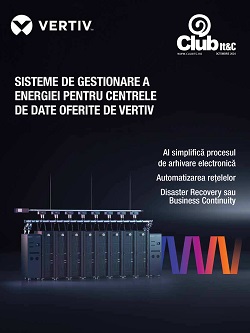In the context of the urgency and the unique opportunity to manage the systemic problems faced by the business environment, as a result of Brexit , the Romanian-British Chamber of Commerce (BRCC) calls for an integrated approach to reconcile the short-term measures adopted by the authorities with concrete suggestions and with an emphasis on a strategic vision, and to ensure solutions to the current fiscal regime applicable in bilateral relations.
 The purpose of the BRCC is to raise awareness of the possible negative effects of the Convention for the avoidance of double taxation with respect to taxes on income and capital, hereinafter referred to as RO-UK CEDI, on the market and investments in Romania and to identify potential solutions to make investments in both countries more attractive, in the current economic context.
The purpose of the BRCC is to raise awareness of the possible negative effects of the Convention for the avoidance of double taxation with respect to taxes on income and capital, hereinafter referred to as RO-UK CEDI, on the market and investments in Romania and to identify potential solutions to make investments in both countries more attractive, in the current economic context.
The BRCC highlights the need for structured consultations between the authorities and the Romanian-British business community and has signaled the main concerns, as well as the solutions agreed by the member companies regarding the possible negative effects of the RO-UK CEDI on bilateral trade relations.
“Each country is responsible for its own tax system, its own legislation and its own tax policies and strategies. As part of the national strategy, double taxation conventions are an important means of improving bilateral relations. Taking into account all this, we appreciate the Romanian Government and Parliament as institutions with a crucial role in improving the strong strategic partnership already established between Romania and Great Britain”, said Dan Schwartz, BRCC Vice-President.
Romania-Great Britain economic relations, after BREXIT
After Brexit , Romania and Great Britain remain states that share the same vision on many regional, international and global issues. Moreover, the Romanian community in Great Britain is the second largest, being generally well integrated into British society. The majority of Romanians work in sectors that lack sufficient labor or specialists, such as financial and banking services, IT, arts, architecture, education, research and development.
Romania and Great Britain enjoy deep historical ties and share European values, close economic ties and strong interpersonal relations. The two countries also pay special attention to both bilateral exchanges of goods and services and investments. The upward trend in trade and the volume of British investment in Romania has been maintained in recent years at a relatively high level, with both countries acting together to achieve ambitious goals. For example, total trade in goods and services (exports plus imports) between the UK and Romania was £9.6bn in the four quarters to the end of Q4 2022 and £3.1bn in the four quarters until the end of the 4th quarter of 2021. It is noted that Romania was the 30th largest trading partner of Great Britain in 2022, representing 0.6% of the total international trade of the United Kingdom. However, BRCC believes that there are still many unexplored possibilities in terms of the development of Romanian-British trade relations.
The situation of taxation and double taxation
In terms of taxation, the exit of Great Britain from the EU brought an unfavorable fiscal position for both British investors in Romania and for Romanian investors in Great Britain, compared to the period when Great Britain was part of the European Union and the European Directives have were applicable. As the EU directives have ceased to apply, both Romanian and UK investors may find themselves in the situation of being double taxed on passive income such as dividends, interest or royalties.
Double taxation often occurs in international transactions when the same income is taxed in two different countries under their national tax laws. Since it can affect direct investment and investors, especially when it comes to financing the activity and/or distributing dividends, governments try to reduce the negative impact of double taxation whenever possible by negotiating and enforcing double tax treaties impositions.
In this sense, in 1975, Romania and Great Britain signed the “Convention for the Avoidance of Double Taxation with Respect to Taxes on Income and Capital”. Treaties on the avoidance of double taxation play an essential role in the context of international cooperation. Such treaties serve to encourage international direct investment and, consequently, bilateral economic growth, by reducing or eliminating double taxation on cross-border income Double taxation treaties also aim to strengthen cooperation between countries and tax administrations, in particular with regard to the prevention of tax avoidance payment of taxes and tax evasion, as well as improving the exchange of information in the tax field.
What is RO-UK CEDI
The provisions of a CEDI are applicable to residents, legal and natural persons, of the two signatory states. We outline below some effects of the RO-UK CEDI on passive income, such as interest, dividends and royalties, from a Romanian tax perspective.
UK shareholders who invest in Romanian businesses have, for example, the right to receive dividends from Romania. Romanian investors in Great Britain benefit from the same right. As a rule, passive income obtained by non-residents in Romania is taxed at source. In this situation, income streams such as interest, dividends and royalties obtained by British investors from Romanian companies are taxed at source in Romania. Such income is also taxed in the UK. Currently, the withholding tax applicable in Romania according to domestic legislation is 16% for interest and royalties and 8% for dividend payments. Before Brexit , when the European directives were still applicable, interest, royalties and dividends were not subject to withholding tax either in Romania or in Great Britain if certain conditions were met, as the EU directives aimed to encourage investment, the free movement of capital and the elimination of double taxation impositions. As a relatively positive thing, in the absence of European directives, we still have in force the RO-UK CEDI, signed in 1975, which can be used to a limited extent for the purpose of eliminating double taxation. According to the provisions of this treaty, interest, royalties and dividends can be taxed at source, both in Great Britain and in Romania, and double taxation will be avoided by means of a tax credit mechanism on the basis of which the tax withheld in each country can be partially deducted from the tax due in the other. This mechanism does not solve all the practical aspects since the convention does not take into account the changes in taxation rates that have occurred in Romania from 1975 until today, in this way its provisions are mostly less favorable than those of Romanian domestic legislation. Such a treaty that provides higher or equal tax rates than those provided for in domestic legislation cannot work, and could even be considered meaningless.
A potential solution: upgrading the RO-UK CEDI
BRCC believes that a solution to the above problems would be the modernization of the RO-UK CEDI, which would allow investors from both countries to benefit from conditions similar to those they enjoyed before Brexit, when EU directives were applicable . We would also like to confirm BRCC’s continued involvement and support of efforts to realign the RO-UK CEDI to the current needs of the business environment in the two countries.
As evidence of our continued involvement and taking into account the importance of the RO-UK CEDI for the Romanian-British business community, BRCC has established an internal working group, made up of specialists in national and international taxation, with the aim of identifying the necessary technical means an efficient and realistic approach to a modern double taxation convention.
In conclusion, the current CEDI is not consistent with the new economic and social realities in Romania and, therefore, no longer supports the current Romanian economy in full development, at least for the following reasons:
• The convention is 48 years old and ended when both the economic and social conditions in Romania, as well as the Romanian-British economic, social and military bilateral relations, were completely different from today’s;
• The convention provides for tax rates in many cases higher than the domestic Romanian legislation, which makes it inapplicable, at least in Romania;
• After BREXIT, the more favorable fiscal provisions granted by European Union legislation are no longer applicable in the Romania-Great Britain relationship;
• Although both countries have signed a multilateral instrument (MLI), there are still differences between their positions and views, which can be mitigated by adopting a new convention;
• From a Romanian perspective, a new treaty drawn up using the OECD Convention model would be an additional argument for Romania’s admission to the OECD;
• If Romania and Great Britain wish to improve and develop their bilateral commercial, social, economic and military relations, more favorable provisions for the taxpayers of both countries should be negotiated through the Convention.
As a tax treaty plays an essential role in international cooperation and national economic growth and development, by encouraging investment and the free movement of capital and people, the BRCC wishes to engage in efforts to realign the RO-UK CEDI to the current needs of the environment of business from the two countries and expresses its full availability for carrying out a constructive dialogue with the authorities, offering them the experience of the member companies, accumulated in the international, community and local economic environment.






























